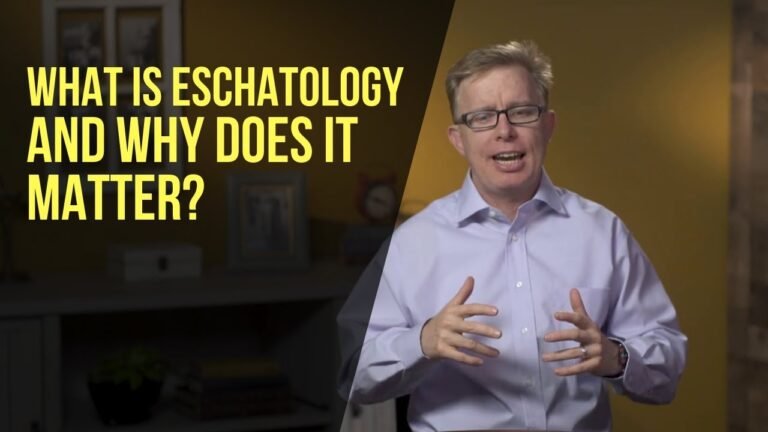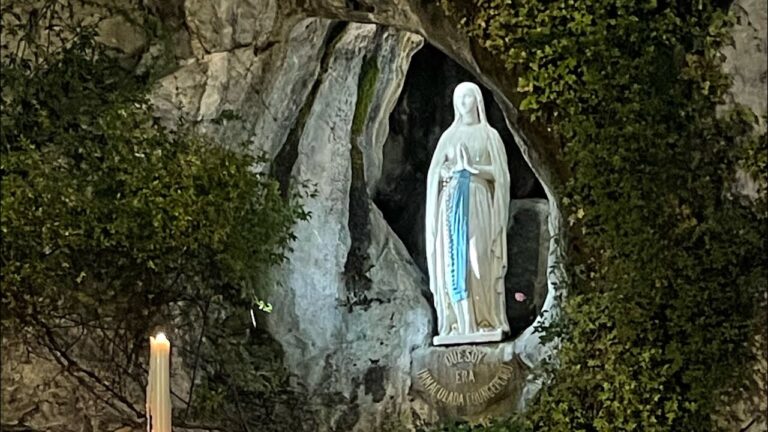Exploring Eschatological Perspectives: A Comprehensive Overview
In a world increasingly captivated by the unknown, the eschatological themes woven throughout various cultures and religions offer profound insights into humanity’s quest for meaning and understanding of the end times. These narratives not only shape our perceptions of destiny and purpose but also challenge us to reflect on our values and choices in the present. As we navigate the complexities of modern life, exploring eschatological beliefs can illuminate our paths and inspire a deeper connection to both the past and the future.
What does eschatological belief mean today?
Eschatological belief today refers to ideas about the end times, judgment, and the ultimate fate of humanity, often influenced by religious or philosophical perspectives.
What is the meaning of eschatology?
Eschatology delves into profound themes surrounding the ultimate fate of individuals and humanity as a whole. Rooted in theological study, it explores key concepts such as death, judgment, and the final destiny of souls, addressing essential questions about existence and the afterlife. This area of inquiry not only shapes religious beliefs but also influences ethical perspectives, inviting reflection on the implications of our choices in the context of an eternal journey.
What does Jesus teach about eschatology?
Eschatology, as taught by Jesus, centers on the transformative reality of the impending final judgment that will reshape the physical world. In this teaching, Jesus emphasizes that this event will lead to a clear division: the condemned will face punishment or annihilation, while the righteous will be rewarded with eternal paradise. This profound announcement highlights the urgency and significance of moral choices in the present, inviting believers to engage actively with their faith and the consequences it carries for the future.
What are the four components of eschatology?
At the heart of eschatology lie the Four Last Things: Death, Judgment, Heaven, and Hell. These concepts serve as the ultimate milestones in the human experience, marking the transition from earthly life to the eternal realm. Each element invites profound reflection, prompting individuals to consider the significance of their choices and the legacy they will leave behind.
As we contemplate these final stages, the mysteries surrounding the end of the world evoke both fear and hope. The certainty of death reminds us of our mortality, while the promise of judgment encourages accountability. Ultimately, the visions of Heaven and Hell offer a glimpse into the consequences of our actions, urging us to strive for a life of purpose and virtue as we navigate our journey toward eternity.
Unraveling the End Times: Diverse Views Explained
Throughout history, the concept of the End Times has captivated the imagination, inspiring a myriad of interpretations across cultures and religions. From apocalyptic prophecies in sacred texts to modern interpretations in literature and film, each viewpoint reflects humanity’s hopes, fears, and quest for meaning. Scholars, theologians, and everyday believers often engage in discussions that highlight the diverse beliefs surrounding this profound topic, emphasizing themes of redemption, judgment, and renewal.
As we delve into these varied perspectives, it becomes clear that the End Times serve not just as a forecast of doom, but as a powerful lens through which we can examine our current world. Many see it as an opportunity for transformation, urging individuals to reflect on their actions and relationships. By exploring the rich tapestry of beliefs surrounding the End Times, we gain insights into our collective consciousness, prompting vital conversations about the future and our roles within it.
A Journey Through Final Destinies: Insights and Interpretations
Life is often perceived as a series of destinations, each marked by milestones that define our journey. From the excitement of new beginnings to the solemnity of goodbyes, each experience shapes who we are. As we navigate through these final destinies, we uncover profound insights about ourselves and the world around us. Each conclusion offers a chance for reflection, allowing us to appreciate the lessons learned and the growth achieved along the way.
In this intricate tapestry of experiences, interpretations vary, yet the essence remains the same: every end is a new opportunity. Embracing the unknown can be daunting, but it also opens doors to fresh perspectives. By understanding our final destinies, we cultivate resilience and wisdom that guide us forward. Ultimately, this journey is not just about reaching an endpoint, but about discovering the richness of each moment and the stories they weave into the fabric of our lives.
Understanding the Apocalypse: A Deep Dive into Beliefs and Theories
Throughout history, the concept of the apocalypse has captivated human imagination, intertwining with various cultural, religious, and philosophical narratives. From ancient scriptures to contemporary literature, the idea of an end times scenario reflects deeper societal fears and aspirations. Believers often interpret these prophecies as warnings, while others view them as allegories for personal transformation and renewal. This duality highlights the complexity of apocalyptic beliefs, revealing how they resonate with both individual and collective consciousness.
Theories surrounding the apocalypse range from environmental crises to cosmic events, each fueled by a blend of scientific inquiry and spiritual speculation. Climate change, for instance, has sparked discussions about a potential societal collapse, prompting a surge in movements aimed at sustainability and ecological preservation. Conversely, some embrace the notion of a divine intervention or a cataclysmic event that would reset humanity’s moral compass. These varied perspectives underscore the urgency of addressing contemporary challenges while grappling with the existential questions posed by apocalyptic narratives.
Ultimately, understanding the apocalypse invites a reflection on the human condition itself. It challenges us to confront our vulnerabilities and to seek meaning in the face of uncertainty. As we navigate through a rapidly changing world, examining our beliefs about the end times can inspire hope, resilience, and a commitment to fostering positive change. By engaging with these ideas, we not only explore the fears that haunt us but also the possibilities for renewal and transformation that lie beyond them.
As we navigate the complexities of eschatological beliefs, it becomes clear that these perspectives not only shape individual worldviews but also influence broader societal values. Understanding the nuances of these doctrines invites deeper conversations about purpose, morality, and the future of humanity. Embracing this exploration can foster a greater appreciation for diverse beliefs and encourage a more harmonious coexistence in an increasingly interconnected world.







